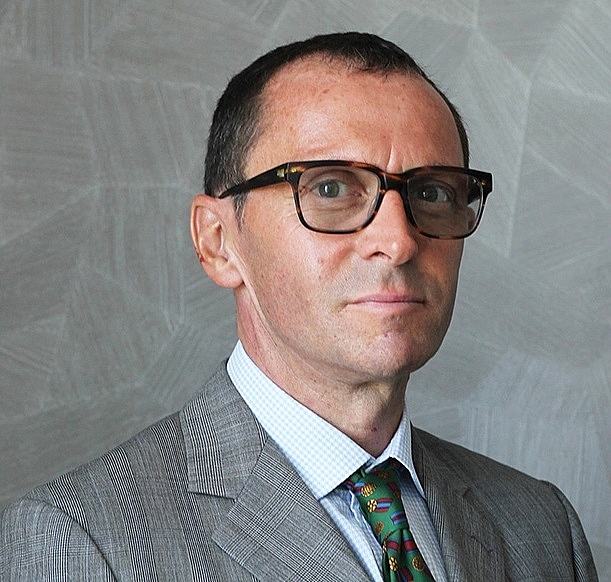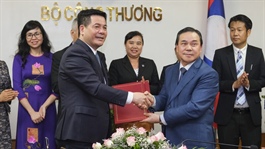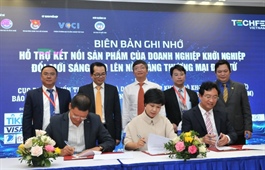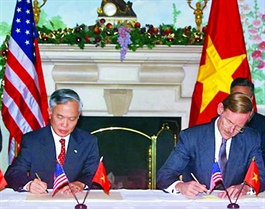Refining the implementation of ESG at Vietnamese corporates
Refining the implementation of ESG at Vietnamese corporates
Sustainability has been top of the agenda for international investors in recent years. Nick Ainsworth, chief marketing officer at Dragon Capital Group, shared with VIR’s Luu Huong the importance of sustainable investment and the major challenges of environmental, social, and corporate governance implementation.

Nick Ainsworth, chief marketing officer at Dragon Capital Group
|
How do you assess the potential of Vietnam-based firms to successfully embed environmental, social, and corporate governance (ESG) criteria into their investment portfolios and corporate culture?
The absence of strong local laws and the lack of many local institutional investors in the stock and bond markets means that the pressure on corporates in both the public and private sectors to adopt and implement strong ESG practices are low. Although global awareness of ESG is rising, it remains a relatively unfamiliar topic to businesses in Vietnam, and even the local regulatory authorities.
As a developing nation, the focus in Vietnam at both state and corporate level has primarily been on economic growth. Whilst increased advocacy has seen a growth in awareness of ESG risks, it remains relatively low overall, and there is a corresponding deficiency in effective policies to manage those risks at a micro and macro level.
The UN’s Principles for Responsible Investment now asks if the fund manager does ESG on Vietnam’s government bonds. Of course we cannot do ESG with the government like we do with corporates. But the fact that the World Bank, the International Finance Corporation (IFC), and many Western sovereigns are in Vietnam and run projects with the country is signalling that they regard it as an acceptable partner for general ESG standards.
How has the COVID-19 pandemic affected companies’ sustainability commitment?
The pandemic has raised awareness and focus of ESG among investors in most markets, and some regulators in Hong Kong, for instance, have been creating a regime with more accountability for investors on ESG matters in the course of the past year.
These will, in turn, be passed on to the corporates over time through direct engagement, activism, and voting rights. Without question, the COVID-19 disaster has underlined the fragility of human relationships with biodiversity, and the urgent need to expand our awareness of natural planetary capital.
What are the biggest challenges for investors in ESG integration, especially in Vietnam’s context?
Stemming in part from a lack of awareness, the adoption of international standards in Vietnam is generally lagging. While almost all public companies in Vietnam now perform an environmental and social impact assessment when investing in a new project, many see this exercise as merely procedural.
To date, little progress has been made in raising local standards used in these assessments to global standards. And this addresses only environmental criteria and perhaps the corporate governance part in of environmental matters. At this stage in the development of the country we see some principal obstacles.
Firstly, as a frontier market, access to information in Vietnam is always a difficulty for international investors and this is particularly the case with ESG information. There are currently few mandatory disclosure obligations, and a strong corporate culture of voluntary disclosure has not yet been developed. Also, whilst there are guidelines and examples of effective application of ESG standards for private investments, there is a distinctively different dynamic in public equities.
Unlike investors in private equity, institutional investors like ourselves have at present limited leverage to require public companies to disclose ESG data. In addressing this, Dragon Capital has made progress with its commitment and on-the-ground team, although it remains a challenge, particularly in relation to state-owned groups.
Within the ESG trinity, environmental matters seem the easiest to address given their visibility and the breadth of their impact on the population. Social and governance matters can be much more nuanced and therefore more difficult to address with a secure commitment.
What has Dragon Capital done to raise ESG awareness in Vietnam?
Dragon Capital developed its original ESG management framework in collaboration with the IFC specifically for public equity and fixed income investments. This system has been refined over time. The process is managed by a core team comprising a cross-section of investment analysts and senior management. In 2020, the team was expanded from three to seven members to ensure that emerging and evolving issues continue are appropriately addressed.
At the same time, Dragon Capital enhanced the framework by developing an in-house knowledgebase which helps efficiently track the ESG ratings of investee companies, and also facilitates the reliable monitoring of ESG incidents. We believe there are three main elements to an active ownership strategy: voting, engagement, and advocacy. Each of these elements is also an effective tool within the ESG framework.
In 2020, we also produced a submission on the need for mandatory disclosure of greenhouse gas emissions for public companies in Vietnam, and have made progress engaging with the Ho Chi Minh City Stock Exchange and the State Securities Commission on this topic.


























